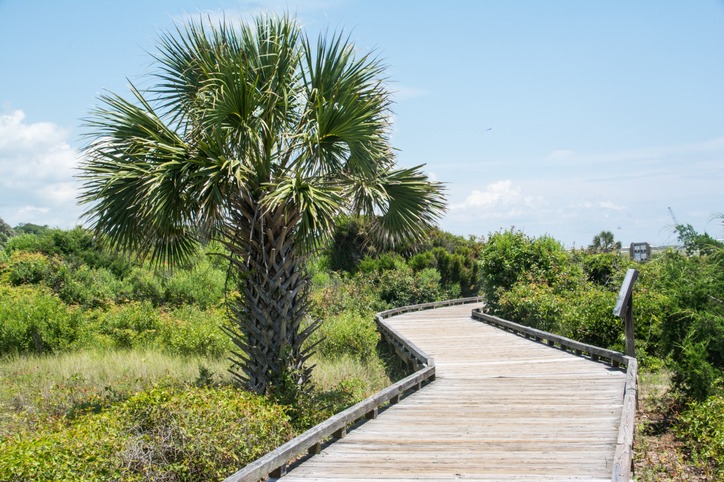Thinking About Retiring in Myrtle Beach? Here's What to Know First
Retiring in Myrtle Beach sounds like a dream — and for many, it is. With miles of ocean views, affordable living, and a laid-back coastal lifestyle, the Grand Strand has become one of the top retirement destinations in the country.
But is it right for you?
Before you pack up your things and head south, let’s break down what it’s really like to retire in Myrtle Beach, including the biggest pros and the most important cons. Whether you're seeking golf, grandkids, or beachside peace, this guide will help you make the best decision.
✅ PROS OF RETIRING IN MYRTLE BEACH
1. Affordable Cost of Living
Myrtle Beach is consistently ranked among the most affordable beach towns in the U.S.
No state tax on Social Security income
Reasonable property taxes and cost-effective utilities
Abundant senior discounts and specials
Homes, condos, and 55+ communities available at a wide range of prices
Why it matters: Retirees can stretch their savings without sacrificing lifestyle.
2. Mild Weather Year-Round
The climate in Myrtle Beach is a major draw. Winters are short and mild, and while summers can be hot, sea breezes help.
Avg. winter highs: 55–60°F
Avg. summer highs: 85–90°F
Plenty of sunshine and very little snow
Perfect for: Golf, walking, gardening, and enjoying your porch nearly year-round.
3. Abundance of 55+ Communities and Healthcare Access
There’s no shortage of retirement-ready neighborhoods with amenities like clubhouses, pools, golf, and more.
Top 55+ communities: Del Webb at Grande Dunes, Myrtle Trace, Seasons at Prince Creek
Nearby medical centers: Grand Strand Medical Center, Tidelands Health, Conway Medical Center
Peace of mind: Myrtle Beach offers strong access to urgent care, specialists, and primary physicians.
4. Endless Recreation & Social Activities
Whether you love to golf, fish, volunteer, or take in live shows, there's always something to do.
Over 80 golf courses in the area
Local clubs for photography, crafts, pickleball, and more
Live theater, music, and festivals year-round
Grand Strand Senior Center programs and activities
Bonus: You’ll never be bored (unless you want to be).
5. Beautiful Natural Surroundings
Beachfront walks, marshland boardwalks, and peaceful state parks — Myrtle Beach offers a unique blend of nature and coastal living.
Huntington Beach State Park and Myrtle Beach State Park for nature lovers
MarshWalk in Murrells Inlet for sunset views
Birding, boating, and fishing opportunities
Perfect for: Retirees who value both peace and proximity to outdoor beauty.
❌ CONS OF RETIRING IN MYRTLE BEACH
1. Tourist Crowds (Seasonal Congestion)
From May through August, Myrtle Beach sees millions of tourists, especially near the oceanfront and attractions.
Traffic congestion on Hwy 501 and Kings Hwy
Longer wait times at restaurants and shops
Noisy beach areas during peak season
Local tip: Retirees tend to settle in quieter areas like Carolina Forest, Murrells Inlet, North Myrtle Beach, or Little River to avoid the crowds.
2. Hurricane Risk
As a coastal region, Myrtle Beach is vulnerable to hurricanes and tropical storms.
Hurricane season: June through November
Potential for evacuation orders and property damage
Flood insurance may be required in some zones
Prep tip: Choose housing wisely and ensure proper insurance coverage.
3. Limited Public Transit
While there is a local bus system (Coast RTA), it’s not always convenient or comprehensive for retirees without cars.
Limited routes outside major hubs
Most errands and appointments require driving
Solution: Many retirement communities offer transportation, or choose neighborhoods within walking distance of essentials.
4. Humidity and Summer Heat
Although many love the warmth, summers can be humid and sticky — especially for retirees with respiratory concerns or sensitivity to heat.
July and August are the most intense
Mosquitoes can be an issue in certain areas
Stay cool: Choose homes with good airflow, shade, or community pools.
5. Healthcare Wait Times
As the area grows, some retirees report longer wait times for specialty appointments or new-patient availability.
More demand than supply in some areas
Always ask your community or HOA for doctor recommendations
Pro tip: Establish care with a physician early and consider concierge medical options if needed.
Best Places to Retire in the Myrtle Beach Area
If you're convinced Myrtle Beach is for you, here are some of the most popular neighborhoods for retirees:
Carolina Forest – Affordable, growing, and great amenities
Murrells Inlet – Quiet, scenic, and nature-filled
North Myrtle Beach – Close to the coast with less congestion
Little River – Slower pace and historic charm
Conway – More inland, with a true Southern town feel
Final Thoughts: Is Myrtle Beach the Right Place to Retire?
Yes, if you love coastal living, warm weather, and active days.
No, if you're allergic to crowds or prefer four distinct seasons.
Ultimately, retiring in Myrtle Beach comes with more pros than cons — especially if you plan ahead and choose the right neighborhood. With low taxes, natural beauty, and plenty to do, the Grand Strand offers a vibrant and affordable retirement lifestyle that’s hard to beat.
Visit Grand Strand Spotlight for more information on retiring in Myrtle Beach.
 Add Row
Add Row  Add
Add 




 Add Row
Add Row  Add
Add 

Write A Comment